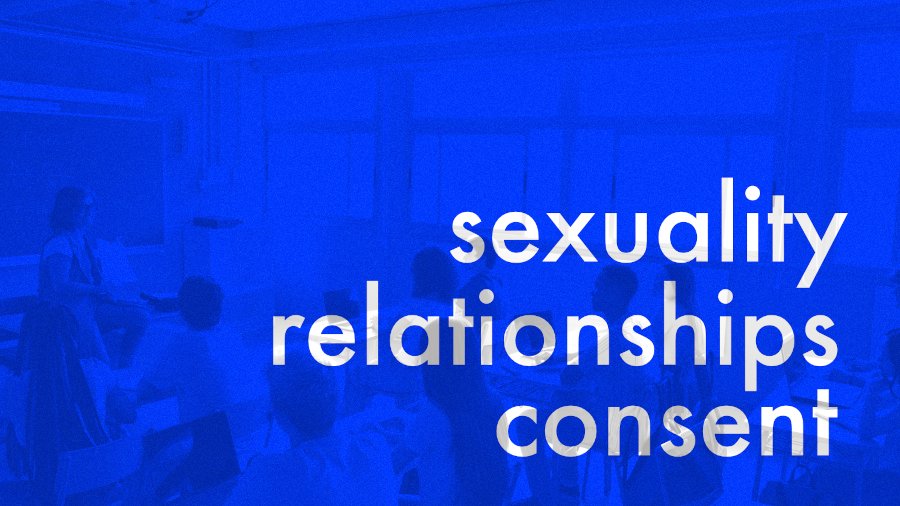The Women’s Rights Party welcomes the announcement that the Relationships and Sexuality Education Guidelines are to be removed as of the end of Term 1 next year.

The current guidelines, which cover Years 1-10, are to be replaced by a refreshed curriculum that would define the core knowledge and skills students should learn at each age.
The Education Review Office [ERO] has also recommended extending compulsory relationships and sexuality education to the senior secondary school (Years 11-13) when students need it most.
The Women’s Rights Party policy supports age-appropriate and scientifically accurate education about sexuality, relationships, and consent.
Co-leader Jill Ovens says even young children need to learn about friendships and bullying, how to manage their feelings, and how to protect their personal safety (i.e. what is inappropriate behaviour and who they should tell if they are experiencing abuse).
A majority of parents were supportive of such education in primary school. However, 63% of parents reported to ERO they wanted human reproduction taught at a later age when this becomes more relevant. Issues around consent, relationships and contraception are also considered to be important topics for adolescents.
“The challenges our young people face are changing, in particular from increased access to pornography, and online bullying and abuse. They need to learn strategies to keep them safe from online harm and lead healthy lives,” Ms Ovens says.
“We know that many adolescents are accessing harmful online content – pornography and ‘rough sex’ that creates a culture among boys of disrespecting girls, and unrealistic sex stereotypes that create anxiety, especially among young girls.”
Last month Australia’s Parliament passed a law banning social media use for those aged under 16. The new Act says social media companies have to take ‘reasonable steps” to prevent under 16s from having social media accounts.
“In the absence of any such regulation of social media here in New Zealand, the onus falls on parents, which is difficult to do at an age when peer influences are so important. That’s why education in schools about issues such as consent and healthy relationships is so important,” Ms Ovens says.
The Women’s Rights Party is concerned that some of the language in the ERO Report is misleading. This highlights the importance of ensuring that the right people are tasked with writing the new curriculum.
“ERO conflates ‘sex’ and ‘gender’ and confuses sexual orientation with ‘gender identity’, an imprecise concept based on a belief system rather than biology. There is also no such thing as ‘gender stereotypes’ – they are sex stereotypes, which can be harmful for both girls and boys. Further, sexual orientation is not a sexual ‘identity’,” Ms Ovens says.
The Women’s Rights Party policy states that sex education needs to be clear that changing sex is not biologically possible.
“Children who don’t conform to sex-based stereotypes or who could grow up to be attracted to the same sex, should be supported in this,” the Policy states.
The Women’s Rights Party says most parents support age-appropriate education about sex and relationships in schools, but there is a problem with the way our education system currently reinforces “social transition” (changing appearance to align with stereotypes of the opposite sex (or no sex), using inappropriate pronouns, and allowing use of opposite sex toilets and changing facilities), often without parents’ knowledge.
“Our policy states teachers should not be supporting social transitioning in schools. Supporting social transition is a clinical intervention that often leads to medical transitioning and affects all students,” Ms Ovens says.
“Teachers can refer concerns about children who show signs of distress about their sex to appropriate professionals in line with the recommendations of the UK Cass Report, and all such discussions must involve parents.”
ERO has recommended that schools should be required to explain to parents and whānau what is to be taught, rather than consult the school’s community every two years, because the Report says the issue has become very contentious.
Their solution is to have a standard curriculum throughout the country and if parents do not like it, they can withdraw their children from relationships and sexuality education classes.
Ms Ovens says this attitude seems very cavalier, though she is aware of parents withdrawing their children from such education, sometimes at the students’ request.
“Parents have also reported to us that full disclosure of what is being taught has been a problem,” she says. The ERO Report found that many schools have been failing to consult and some board members were unaware that this was a requirement.
Ms Ovens says one of the problems has been outside agencies such as Inside Out and Qtopia, which have been providing inappropriate ideologically driven resources and instruction in schools, including when the teacher is not present.
ERO also found that not all teachers were well prepared to teach RSE, particularly in primary schools where RSE is often taught by the classroom teacher. One in three teachers reported that they found teaching RSE stressful.
“We agree it is important that all teachers have the skills and support they need, and that the Ministry of Education is the most appropriate provider of evidence-based resources and support,” Ms Ovens says.
